Rich and Famous People on Bitcoin
- Overview - Table of Contents
- Bill Gates
- Warren Buffett
- Dr. Eric Schmidt
- Al Gore
- Dmitry Medvedev
- Ben Bernanke
- Lawrence Summers
- Chamath Palihapitiya
- Peter Thiel
- Dan Kaminsky
- Dr. Patrick Byrne
- Richard Branson
- Julian Assange
Bitcoin is one of those topics that evokes great emotion and debate. So it is no surprise that even the richest and most famous people in the world have shared their thoughts and opinions on Bitcoin.
No banks, no fees and no inflation. These are a few potential perks of this thing called Bitcoin. But is bitcoin really the money of the future? What is all the rage about?
Bill Gates
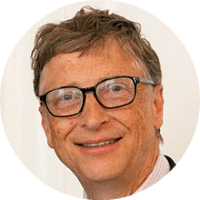
Founder of Microsoft and richest person in the world.
"I think it's a technical tour de force but that it is an area where governments are going to maintain a dominant role."
"Bitcoin is exciting because it shows how cheap it can be. Bitcoin is better than currency in that you don’t have to be physically in the same place and, of course, for large transactions, currency can get pretty inconvenient.”
Warren Buffett
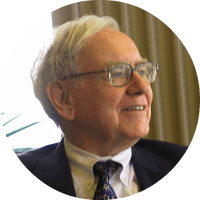
CEO of Berkshire Hathaway and the second richest person in the world.
"Bitcoin is exciting because it shows how cheap it can be. Bitcoin is better than currency in that you don’t have to be physically in the same place and, of course, for large transactions, currency can get pretty inconvenient.”
Dr. Eric Schmidt

Holds a PhD in Computer Science, was CEO of Google and is now Executive Chairman. He is also ranked as the 138th-richest person in the world, with an estimated wealth of $8.3 billion.
"Technical answer in bitcoin is that bitcoin is a remarkable cryptography achievements."
"Bitcoin is a remarkable cryptographic achievement and the ability to create something that is not duplicable in the digital world has enormous value"
Dmitry Medvedev
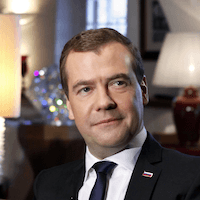
Dmitry Medvedev has been the Russian Prime Minister since 8 May 2012. The Russian Prime Minister is considered the second highest position in the government, after the President.
"There are many examples of this, such as actively developing "blockchain" technologies. So called 'smart contracts' allow creation of self-regulated autonomous organizations independent of the State.
Such systems take on a life of their own, transcending existing written laws. This presents extremely interesting phenomenon and challenge to legal scholars.
It seems that in many such cases there exists a limit of what a law is able to achieve in principle. The deals that transfer property, that certify the property rights - it all happens in a highly automated fashion. ...
Such novel situation calls for a concerted effort to deal with it. We need to analyze it. It puts non-standard tasks in front of the legal scholars, lawmakers.
So non-standard solutions are needed that may lay the foundation for a completely new legal field. I hope for productive discussions regarding this issue among us."
</center>
Richard Branson
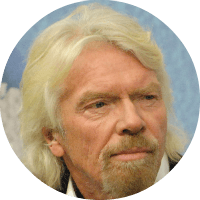
An English businessman and investor who is best known as the founder of Virgin Group comprising more than 400 companies. Branson is the seventh richest citizen of the United Kingdom, with an estimated net worth of US$4.9 billion.
"There's a big industry around and, you know people have made fortune out of bitcoin."
"If people have lots of bitcoin and they want to go to space, I much rather they spend that money on a spaceship."
Chamath Palihapitiya
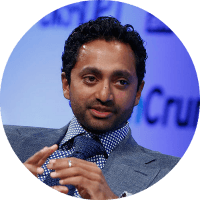
Venture capitalist and partial owner of the Golden State Warriors. In March 2013, Palihapitiya confirmed that his venture fund had raised over $275 million in its second round of fundraising.
"It is a huge deal, it's a huge, huge, huge deal."
"I mean I personally -- I own bitcoin in my hedge fund, I own bitcoin in my fund, I own bitcoin in my private account."
Lawrence Summers
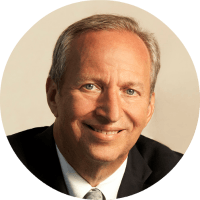
An economist who is President Emeritus and Charles W. Eliot University Professor of Harvard University. He served as 71st Secretary of the Treasury of the United States from July 2, 1999 to January 20, 2001 and the 27th President of Harvard University from July 1, 2001 to June 20, 2006.
Dr. Patrick Byrne

Holds a Masters from Cambridge in Mathematical Logic and a PhD from Stanford in Philosophy. He is an investigative financial journalist, entrepreneur, e-commerce pioneer, CEO and chairman of publicly traded Overstock.
Former Vice President Al Gore
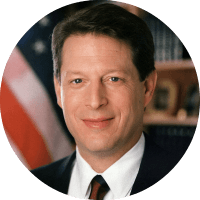
45th Vice President of the United States
"I think the fact that within the bitcoin universe an algorithm replaces the functions of [the government] … is actually pretty cool. I am a big fan of Bitcoin."
Peter Thiel

Co-Founder of Paypal and investor in Bitcoin merchant processor Bitpay.
"I do think Bitcoin is the first [encrypted money] that has the potential to do something like change the world."
Dan Kaminsky

An American security researcher. He is the Chief Scientist of White Ops, a firm specializing in detecting malware activity via JavaScript. He has worked for Cisco, Avaya, and IOActive, where he was the Director of Penetration Testing. He is known among computer security experts for his work on DNS cache poisoning, and for showing that the Sony Rootkit had infected at least 568,200 computers and for his talks at the Black Hat Briefings.
"Entire classes of bugs are missing."
Ben Bernanke
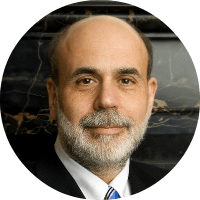
Former Chairman of the United States Federal Reserve.
"[Virtual Currencies] may hold long-term promise, particularly if the innovations promote a faster, more secure and more efficient payment system."
Julian Assange
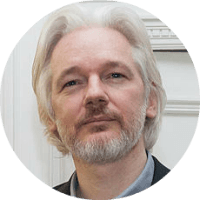
Founder of Wikileaks.
"Bitcoin actually has the balance and incentives right, and that is why it is starting to take off."
### TRANSCRIPT OF Patrick Byrne on Bitcoin
How is digital currency or crypto currency going to change at least here on the United State our -- the system and how we actually managed money?
Patrick Byrne: Well, I start with a premise, I mean, we can talked about if you want, but I'll start with dilemma. We live in an oligarchy. This country history can be told as a competition between two power centers, Wall Street and Washington. About 30 years, Wall Street got Washington under their thumb.
I've been in the belly of the beast. I've fought the fight, you may know I've been -- I was a one man occupying from about 2004, actually not one man. There were about a dozen folks on the internet that we all met each other and we're trying -- belong four occupy Wall Street came along we figure out there is a lot of criminality going on on Wall Street where it was going on and such.
Well, its center on the settlement system and organized crime has figured it out that there are cracks in the nation settlement system, stock settlement system. They're taking advantage of it, but what was curious to me was the reaction of the establishment because we had the good, we had the data the evidence. We had people who took part and we had it all spelled out.
We had lawyers and economists who are willing to, you know, talked to you to the power that's being conformist and the fact that somebody -- the fact that it was so hard 05, 06. We knew there was crash coming. We knew there was a crash coming. That's actually when I ended up going out and thinking of a fair chunk of cash in a gold, because I knew that there was a crash coming and that actually became the kitty with which I have funded my assault on Wall Street.
The thing is this different games that keep the oligarchy alive are fueled by cracks that the system, the financial system has far more cracks and far more sponginess than you have any idea is actually there and it can only exist like that because they have centralized institutions that they can capture, that they can highjack.
Now this used to sound crazy and New York Post used to run picture of me with UFO's coming out of my head when I would talked about we're living in an oligarchy and our regulators that you think are protecting you are not. They're under the thumb of Wall Street and they're doing all this -- we have this central institution that've gotten captured.
The cool thing about everything crypto, cryptocurrency, not everything but about bitcoin is it's peer to peer. You don’t need central institution. You don't need central clearing institution. Central counter party clearing. You don't need a central bank, in fact you can't have a central bank. That is all a source for good. I recently saw Thomas Sowell, who is a great economist I admired out of Stanford and Hoover was asked something about what would you do with a central bank and what would you do with the U.S. Federal Reserve, which is the name for our Central Bank. And he said, "Well, I'd shut it down tomorrow."
And they say, "Well, what would you replace it with." And Sowell said -- you know, it's a tumor, [* 00:03:09] it's like guessing wow, what do you do with a tumor, you cut it out and what are you replacing it with. You don’t replace it with anything, it's a tumor. Well, the Federal Reserve is a tumor on the economic life of America.
Milton Friedman was asked in 1992, what's -- actually it was the Minneapolis branch of the Fed -- Minneapolis Federal Reserve, Minneapolis branch. They asked him, "What's the most important issue facing America?" And he told them, "Most important issue facing America is how do we ger rid of you? How do we get rid of the Federal Reserve?" So, crypto is the answer. It's the Federal Reserve and an organization called the DTCC, which is the central clearing system underneath the stock market are both corrupt.
They're doing things. They benefit the rich and improvers the poor and the middle class. And there, you know, they're not going to stop because we ram in straight with them, because we elect new officials or anything like that. It's far beyond anything that we the citizens can address through the normal mechanism.
What we can do id adopt a technology that gets you're -- that gets you out from this institutions that you don't trust anymore. So that's -- it really is a world historical development, this crypto revolution. It's a world historical development, and what it will do is choke the -- it will turn off the oxygen host that's feeds the oligarchy, which is really -- is really highjack our society. ### TRANSCRIPT OF Lawrence Summers on Bitcoin
David Cowen: Good evening everyone and welcome. If you could settle down please and take your seat. We're going to get started. I am David Cowen, President of the museum. We are the only museum in our nation dedicated to preserving, exhibiting and teaching about our nation finances and financial history and we are assonate affiliate and a neutral venue. I like to acknowledge the sport of our sponsors Voya Financial tonight, who is bringing us this panel and the receptions that will follow.
I'd also like to point out the boards members in attendance Ewout Steenbergen of Voya Financial, and we appreciate it sir. As well as Mark Shenkman, Alvi Abuaf, Randy DelFranco, Glen Kaufman, Consuelo Mack, David Shuler and our founder and Chairman of the board Emeritus, John Herzog. Now, you know, as a museum president. If I had a nickel or a bitcoin for that matter every time someone has come up to me and said, "You want to do a panel on this, are you going to have an exhibit on that." I could have retired wealthy.
But there is one panel that you have been clamoring for and that is about bitcoin and we are proud to tell you we are bringing it to you here tonight. Now why is that? Well, bitcoin has been called a lot of things. On the one hand same are calling it a scam or a Ponzi scheme, and on the other hand are two Wall Street Journal authors tonight have said and I quote, "It is quite simply one of the most powerful innovations in finance, in 500 years. That's a pretty big diverge of opinions between Ponzi schemes and one of the greatest innovations ever.
Now our format tonight will be that Michael Casey, will have a fireside chat with our distinguish guest, our former Secretary of the Treasury, Lawrence H. summer. Michael is a senior columnist covering global finance at the Wall Street Journal, and his co-author Paul Vigna of the Age of Cryptocurrency: How Bitcoin and Digital Money are Challenging the Global Economic Order. And this will be on sale afterwards, and the authors will be happy to autograph it for you.
Now, many of you are here a few month back in the fall when we have former Secretary of the Treasury, Timothy Geithner here. And then last month at our gala we had former Secretary of the Treasury, Robert Rubin speaking. And tonight of course we're joined by another former Secretary of the Treasury. So that's great programming and if you want to see more programming like this or interested in sponsoring program like this, we be delighted to talked with you about that so please see me or any of the staff afterwards.
Now following the fireside chat Paul Vigna will lead us in a panel discussion. You have the bios of the people on the panel but he will do --- make brief introductions. You'll also find three by five cards on your seats there to fill out questions which you'll pass to the isle for our panelist. Also, for those doubter in the crowd, you're getting a free $5 bitcoin gift courtesy of Circle, of course it expires tomorrow February, 12 so please act now. And so thank you again to Voya and once again I will join you at the end of this exciting program, but is now my pleasure to turn it over to Michael Casey.
Michael Casey: Thanks very much David. One quick not of housekeeping and that is that our guest Dr. Lawrence Summers, has fairly tight schedule so we're going to try to move things along fairly quickly here is to leave around 6 O'clock, but I don't want to miss the opportunity to make some important thank you speech before we move forward, particularly to David, for hosting us.
Mindy Rawson and Christina Aguilera, just a fabulous job organizing this and I can't -- I'll be terrible without thanking April Rudin who came to us with the wacky idea that maybe the museum of American Finance would possibly be interest in hosting something around our book so thank you very much to all of you for helping to set this up. This is one of those rare occasions when I could get away with the idea of saying that the guest I'm here with, you know, requires no introduction, but I think it's important to highlight just a few of the points that are the features of the biography of the man to my right.
So, Lawrence Summers, is in fact one of the youngest if not the youngest people to ever earn tenure at Harvard University. He was chief economist at the World Bank. During the Clinton administration he was at first the Under Secretary for International Affairs and then later of course was the Treasury Secretary. He was then President of Harvard University and then of course under President Obama, the Director of the National Economic Council.
He is currently the President of Emeritus at Harvard, but no of this really captures the extent to which Lawrence Summers influences the world and the realm of economic thinking. Perhaps like very few people in the world, Lawrence Summers looms large over the world of economics so I'm deeply honored as this poll to have you here as part of this programs surrounding our books and just thank you very much for joining us.
But Larry, let me start by saying we -- I interviewed you about a year ago and I was just intrigue that you'd express some interest in bitcoin and this technology. And you said to me at the time that one of the reasons why you found that interesting was that the world of finance was ripe for disruption.
That so much of the economy had been disrupted by information technology but finance hadn't be and that was the reason if nothing else to pay attention to this kind of technology. And if you don't mind starting off just to [* 00:06:13] because that comment drew a lot of attentions, so explain that if don’t mind.
Lawrence Summers: Let me just say first that I'm really glad to be at this impressive museum. This is my first visit to it and base on what I've been able to see it will not be my last. Let me say that I'm honored to have a chance to be discussing this topics with you, Michael. I think you're book is an important contribution to the debate what everyone's view about the future of bitcoin, and let me celebrate and acknowledge everybody who is involved in putting this thing together.
I think I think one of the great strength of American democracy in its -- largely unheralded strength is that apart from whatever goes on in congress or with the president. We have this remarkable capacity to have all this institutions where every issue is debated and discuss at great length. And out of that comes an evolving conventional wisdom. Which probably more than any single set of political decisions makers adds, ultimately is what shapes the decisions we make as a country.
And so I think dialogue is like this one level or a chance for people to see a network with each other and learn a little bit about a subject, but in a deeper and more important sets I think are part of what drives our democracy to be a progressive enterprise even at moments when that democracy is most frustrated.
Look, here we are in the 21st century, and if I want to buy your house. We're going to end up giving up seven each percent to the middle man. If I want to buy a refrigerator, and I'm happy to pay for it any which way I have no need to borrow money. I'm going to pay two and a half percent to the people who operate and carry on that transaction.
The bank sits there and it's paying zero, roughly in round numbers to me when I put my money aside, but if I decide that I'm a little sort this month and I need to borrow money till next month. It's likely to be in a credit card at 18%. Now, you know, my credit may not be perfect and there are a set of risk along the way, but 18% is really a lot. And so if you think about it the magnitude of the fractions are actually surprisingly large and have come down by surprisingly little since the days when people who kept track of finance wore green eye shades and had really good pencil sharpeners.
And so it is odd to me that we have seen such a large innovation if you like for money. An ever increasing ray of investment vehicles and ways of hazing, but we have seen so little innovation cumulatively directed at taking the fractional costs out of the system. And when you globally have ten plus trillions dollars going, being in one way or another charged on credit cards and fractional costs of two and a half percent.
That's $250 billion dollars. That is really a lot of money, that a thousand -- that's $800 for every American. And so I think the notion that there is going to be a lot of innovation and experimentation around how those fractional cost can be taken out. Feels like a very important kind of idea.
Michael Casey: What the solution to this problem --
Lawrence Summers: I'm complete predictable, Michael. I'm going to fail to live up --
Michael Casey: No, I -- you --
Lawrence Summers: I'm going to fail to live up to my reputation, and so --
Michael Casey: Predictable in a complete surprising way. It's -- that's you -- what about the solution and there is bitcoin and all cryptocurrencies at some form, a model on this. Resolving the problem you're alluding to which is the middle man. And the issue that they're dealing with is this concept of trust. The idea that we need them because we have a very difficult time performing exchange without them. So the thing about this technology that is reported to be its break through is that it resolve that problem by differing it a community, a group. Is this the way to resolve what and I'm not sure it was specifically about bitcoin but this concept generally? Is this some form of this, the way in which we are going to resolve the issues you are just referring to?
Lawrence Summers: First of all, no one, anyone who claims that they know the answers to like this questions, like this for sure is a fool. So the most I can offer you is instinct and judgements and there are many people in this room who have better inform instinct in judgement than I and many in this room who have put their money behind and theirs careers. In some cases behind their instinct. I looked and I guess I would say three things. One, I think we're observing more and more the power of well managed network. Whether it's a complex places, whether it's Airbnb or whether it's Uber or whether it's Lending Club. We are seeing that with information technology that can permit the development and monitoring of reputations that systems have complex connections are much more possible than they used to be and those contribute to taking fractions out and so they're likely to spread in different places.
Second I would say is whatever that you think about Mr. Nakatomi's contribution as a financial innovator. I think you have to say that the solution to what computer scientist called the Byzantine General's problem, is an impressive intellectual achievement.
Byzantine General's problem refers to, you got a bunch of Byzantine General's, none of whom trust each other a [* 00:14:48] to have a coherent attack plan, and how do you come to a common attack plan when nobody trust each other. That kind of thing is very fundamental problem which goes to exchange and commerce in a very direct ways. It would be very surprising if it didn't ultimately prove to have a substantial application.
After all the example I used to give when I was at Harvard, President of Harvard is I would always see it as my role to make the case for basic research. And I would remark on the fact that mathematics was the most abstract of the sciences that number theory was the most abstract part of mathematics, that the study of prime numbers was a particularly part of number theory. And the progress with respect to understanding prime numbers was integral to the cryptography algorithms that made every ATM in the country possible.
And so it would be amazing if the intellectual break through represented in the solution to the Byzantine General's problem didn't in very important kinds of ways support the process of exchange. Whether or not it will represent some kind of fiat money, I think it is very much in doubt.
And whether it will -- whether what will ultimately be significant here is an algorithm of permitting less fractional transactions and commerce or whether there will be an alternative new store value I think is less clear, but that something very significant has happened.
I think the prospects for that are quite good. It think it is often the case that people who are centrally involved in inventing things do not correctly prophesy where they're all going to and where they're going to lead, and my guess is that the tradition from which bitcoin emanates. Which is a kind of hyper libertarian tradition, is going to be a tradition that if it's succeeds it will leave behind.
I do not believe that a major risk in the world is that the dollar, the pound, the euro and the yen will all be inflated away in a hyper inflationary origin because of death or that will become a wide spread fear and so if that is the case for bitcoin I think it actually a remarkably weak case.
I believe that those who supposed that somehow bitcoin is going to threaten the sovereignty of nations that the ability to imposed money laundering laws, capital controls, tax capital income, all of that is somehow going to be fundamentally changed because now we have bitcoin and it transcends international borders should ponder the fate of trade sports, that supposed for a time that it could exist in cyber space and not be substantially subject to the sovereignty of any nation and found that to be a highly float notion.
I don't think anyone should suppose that if the government were to want to crackdown in some major way on bitcoin or on particularly uses of bitcoin that government would find themselves unable to do that. And so I think one of the retarded of the growth of this technologies is the hyper libertarian aura that has surrounded them and that continues to play a role in the statement of some in the community, but I think when bitcoin is combined and used as a technology where whether it's bitcoin, the current bitcoin or some successor. I don’t pretend to know that's where I think the real fruit will come.
Michael Casey: So what is the role of public policy then? Because if we have an interest in expanding exchanges and improving the efficiencies of finance. It's not about stamping it out I, presumably somehow bring it within a realm which can work. How can government help and what are the challenges that are faced in bringing regulation to this fiat?
Lawrence Summers: This is an area that I think is rich with irony. If read the history of the common law corporation. The single most important development in the history of the common law corporation was when the legal principal that it could be sued was established. And you might asked, "Why was it good to be sued?" Well, because if you can't be sued you can't enter into a binding contract, and only when you could enter into a binding contract could you carry on commerce in a major way. There are internet companies that, and I'm sure I'm over simplifying the story, but have changed their minds in the last two years from lo0ading the prospect of being taxed to desperately hoping to be taxes, because if they're taxed then it was clear that their product was legal and needed to be universally excepted. And I think something similar is going to be necessary.
Bitcoins, it may or may not be the case that bitcoins will ever be worth $10,000, but if a day ever comes when bitcoin accounts for an appreciable fraction of the commerce that take in the world economy, regulated and subject to safeguards. And people believe that something other than a mathematic algorithm is assuring them that their money will not be stolen, that their transaction will be credit. So I think that, you know, it is quite clear that people want to list on exchanges that has stocks on exchanges that have substantial standards.
Assets carry more value when they trade in environments where insider trading is restricted so effectively so that a large number of participants can believe that they're able to participate with a level playing field. And so I think the -- I think of regulations with respect to bitcoin as serving too important in some ways slightly and a theatrical purposes but paradoxically I believe they're ultimately re-enforcing purposes. And that is providing basic protection and confidence for what goes on number one.
And number two, providing the legitimacy that makes substantial growth and innovation possible. If there had never been an FAA, there never would have been wide spread commercial air travel in the United States and I believe the analogy carries over.
Michael Casey: Let's just -- I know, instead of rush for time we're not going to go too much further -- Lawrence Summers: We can do a couple more.
Michael Casey: Couple more, good. So I am -- we start off talking about finance and I love that facts that I'm actually on Wall Street, back in the [* 00:24:15] Wall Street as place not just an abstract entity, but on that context what is in this for Wall Street? I mean, what role -- if it's going to be disintermediate, the world of finance? Do banks -- do they slide away? Do they take on different role? Did they co-opt this technology, I mean, I'm not -- as you say before no one has a crystal ball but what do you imagine Wall Street reaction if indeed the bitcoin equivalent of the FAA comes along and turns this into the everything work scenario?
Lawrence Summers: Wide rang outcome are possible. I think it’s pretty clear that Betamax was a better technology than VHS. I think it's pretty clear that the QWERTY typewriter key board is not the typewriter key board that anybody would invent today, and so I would not minimized the power of incumbency standard and then established in an established order as casting a substantial shadow forward with respect to what happens.
My Harvard colleague Clay Christensen, had written to my mind rather persuasively on disruptive innovation and the general non-tendency of existing industry leaders to embrace disruptive innovation and to remain as leaders for the next generation. You know, the classic example is Kodak and digital photography.
And they don't do it, A. Because they worry about cannibalizing their existing product. B. Because in the early stages of any innovation, it's not as good on the traditional matrix as the traditional product, and so they don’t like it, admired it and see it as the future.
And so I think you'd have to guess that if this flourishes on a large scale that a substantial part of the innovation will come from institutions that are not mega financial institutions today. And I think you'd have to worry a little bit that we find ways of regulating, you know, there is the kind of easy deal.
You [inaudible 00:27:09] you existing large financial institutions accept a little more capital regulation and what not then you want. And we the financial regulatory community will be very tough on paradigm breaking challengers. And, you know, that's was the history -- that's the history of regulation, that it tends to be very hard on entrance. And that's something I think we should want very much to avoid here even as we do recognized that there are a set of very necessary protections and, you know, one thing I've learned over many years is that economist do not have nearly as much imagination about how things can be defrauded as fraudsters do.
And so when people got an algorithm that's fraud proof or maybe it until it isn't, and so I do believe that Ronal Regan, sort of had it right when he said, "Trust but verify." and somebody who agreed with him on virtually nothing my former Harvard colleague the late John Kenneth Galbraith, also had it right when he said, "That conscience is the knowledge the someone is watching." And so think those insights needs to guide our approach to regulation.
Michael Casey: On that note unfortunately I would just love to keep doing this, I think a lot of people here would love to just peruse this conversation further but we're going to have to wrap it up because we got a very tight schedule and we got to get moving so listen Lawrence Summers, thank you so much. It has been a great pleasure, please give Lawrence Summers a big round of applause.
Lawrence Summers: Okay. Thank you very much and good luck to all.
Michael Casey: Okay.
